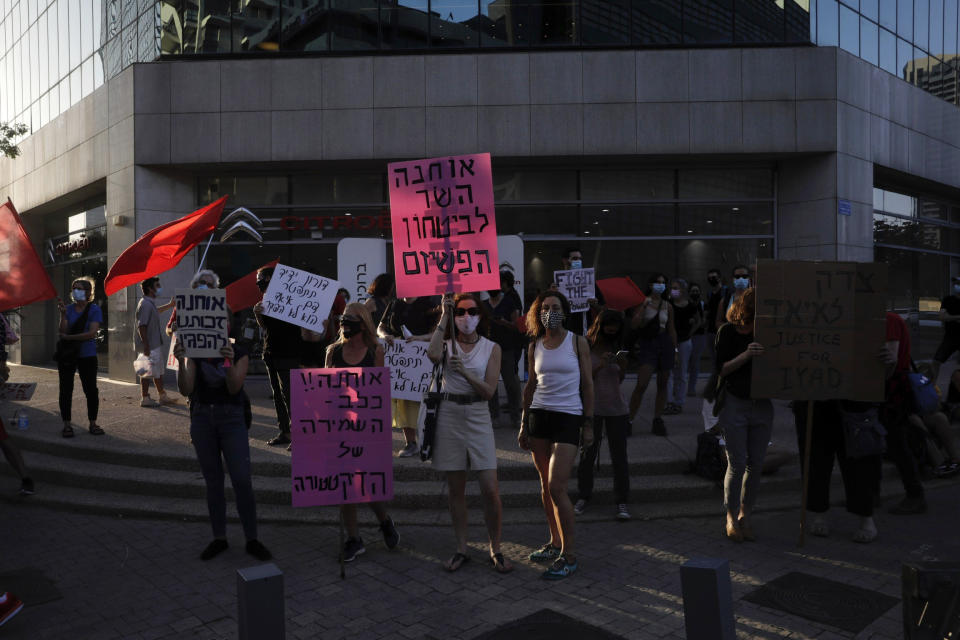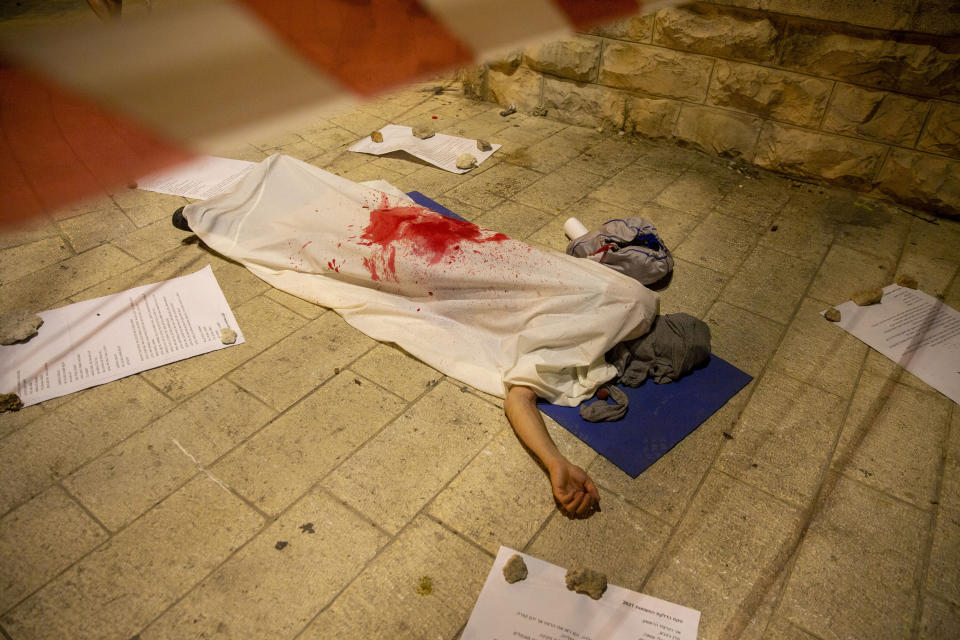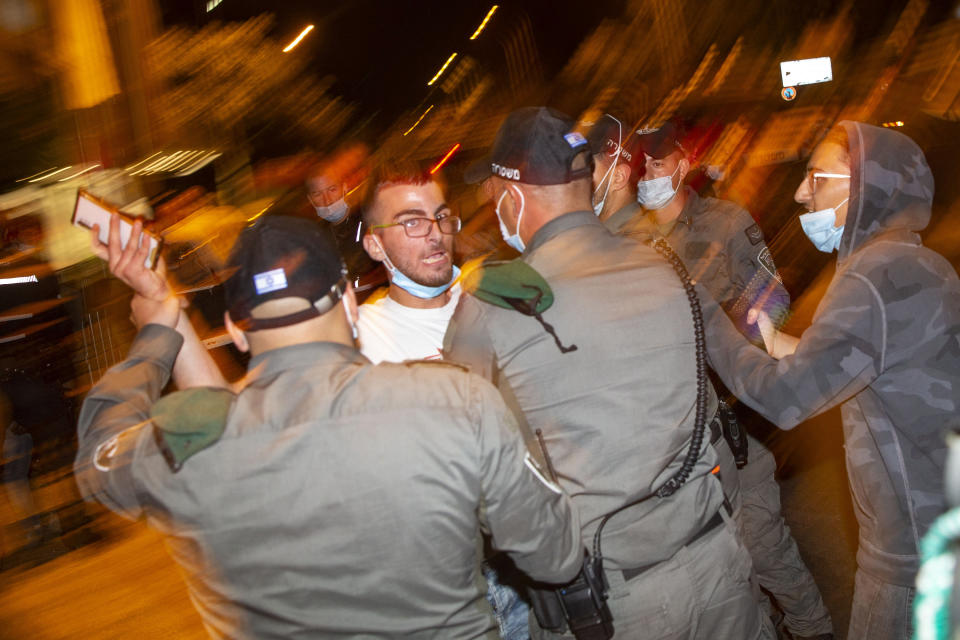Contentious budget vote could push Israel toward elections
JERUSALEM (AP) — Hundreds of opponents of Prime Minister Benjamin Netanyahu demonstrated outside his official residence late Thursday, calling on him to resign, while a small group of his supporters clashed with police and journalists at a nearby outdoor mall.
Thousands of people, including many young Israelis, have joined protests in recent weeks, accusing Netanyahu of mishandling the country's health and economic crisis stemming from the coronavirus pandemic and saying he should step down while he is on trial for corruption charges.
The rallies against Netanyahu are the largest Israel has seen since 2011, when hundreds of thousands took to the streets to protest the country's high cost of living.
While the demonstrations have largely been peaceful, police have arrested dozens for public disturbance and drawn charges of using excessive force against protesters. This week, right-wing extremists assaulted peaceful demonstrators.
As a main demonstration took place outside Netanyahu's residence in central Jerusalem, a group of young men dressed in black cursed the media and attacked a Palestinian bus driver and two journalists at a nearby outdoor mall, media said. Channel 13 TV broadcast footage of the men swearing and beating up its cameraman.
The reports said the men were part of “La Familia,” an extremist group of supporters of the Beitar Jerusalem soccer team, a stronghold of Netanyahu's Likud Party. Police said they arrested at least eight people.
Earlier Thursday, police said they made several arrests connected to right-wing violence earlier in the week. The country's figurehead president, Reuven Rivlin, had urged police to pursue the perpetrators of violence “to the fullest extent of the law.”
The unrest comes at a time of political turmoil that has threatened to dissolve Israel's bloated coalition government just months after it was formed.
The government, established in May after three costly, divisive and ultimately inconclusive elections, was formed with the specific goal of countering the coronavirus crisis and soothing the schisms in society. But from the start it has been characterized by deep internal fighting on most key issues, sparking talk of yet another round of elections.
On Thursday, Finance Minister Israel Katz, a Likud politician, said he would bring a short-term budget up for a vote next week, setting up a showdown with coalition partner Blue and White.
Katz said that given the current economic crisis, it would be imprudent to insist upon a multi-year budget as outlined in the coalition agreement. But Defense Minister Benny Gantz, head of the Blue and White party, is demanding the power-sharing agreement be honored and cites the opinion of top economists who say a budget covering only the rest of the year will create more economic uncertainty.
Netanyahu and Gantz have repeatedly clashed. While Gantz has sympathized with the demonstrators, Netanyahu has taken a more confrontational approach, denouncing them as radicals and anarchists and alleging an incitement campaign against him and his family.
Behind the financial debate lie political calculations as well. The government is required by law to pass a budget by Aug. 25 or else elections are automatically called.
Though he denies the intention, Netanyahu is believed to be angling for a conflict that will trigger a November election to try to preempt what could be a ruling against his fitness to serve ahead of the resumption of the evidentiary stage of his trial in January. During that phase, he will be required to sit in court three times a week.
If a long-term budget deal is reached, Netanyahu would be obligated to turn over the prime minister's job to Gantz in September 2021, a scenario he appears to want to avoid.
Israel was praised early on for imposing tight movement restrictions and a countrywide lockdown at the start of the outbreak. But since reopening the economy in May, new cases have spiked and unemployment remains over 20%, up from 3.9% before March.
Despite the public anger, polls suggest Netanyahu’s Likud maintains a sizable lead over any other challenger and it will be difficult to topple him in elections.



